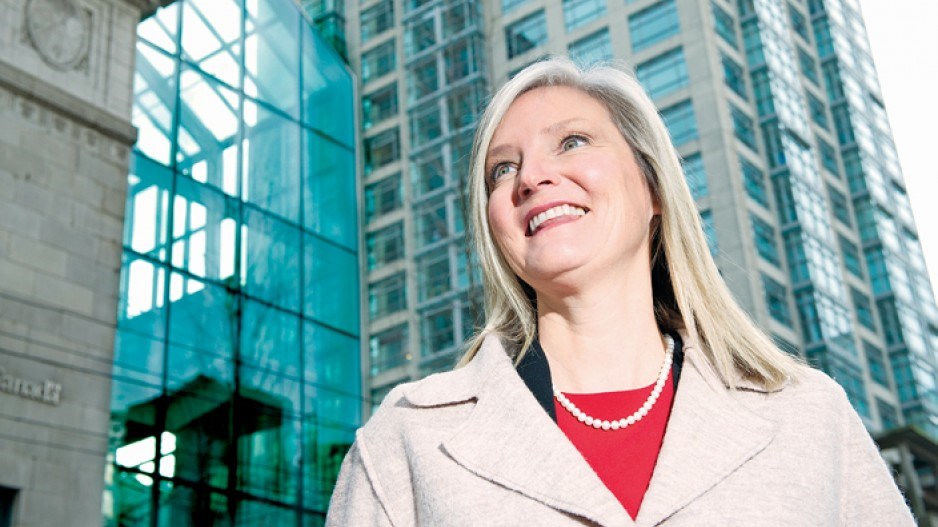Developers might have no option but to sue municipalities that don’t respect provincial guidelines governing community amenity contributions (CACs).
The province’s Ministry of Community, Sport and Cultural Development recently released new guidelines following a two-year study of municipal practice with respect to CACs, which are charged at rezoning.
But consultant Alan Osborne – who drafted the guidelines – told the Urban Development Institute (UDI) last week that there’s no resolution process in place if municipalities ignore the rules.
“Someone has to take them to court,” Osborne said, in response to questions from Anne McMullin, president and CEO of the Urban Development Institute. “There isn’t an appeal board you can go to, the minister can slap them on the wrist, the minister can send letters, but ultimately, in British Columbia, the system is that somebody goes to court.”
While the province might consider entrenching the guidelines in legislation, Osborne said that would be a decision for the politicians if it’s clear that the guidelines haven’t achieved the change in municipal behaviour the province aims to effect with the new ground rules.
“The decision was to produce guidelines; obviously the next step is to monitor the use of guidelines by local governments. Then it’s a political decision about the next steps,” he said. “It’s now very clear what the province thinks about CACs; that foreshadows the next steps if they want to go that far.”
CACs have become a contentious issue for developers over the past decade as municipalities have seen the charges as a lucrative source of revenue for funding public amenities such as child-care facilities, affordable housing and space for community groups.
The charges are typically based on the projected change in a property’s improved value following rezoning.
Between 2000 and 2010, CACs charged to B.C. developers jumped to $720 million from $100 million.
The increase is a function not just of the upswing in rezonings and property values during the period, but funding cutbacks by senior levels of government that forced municipalities to seek alternative revenue sources.
“Somebody’s going to have to pick up that tab,” said Burnaby Coun. Nick Volkow, speaking in lieu of Mayor Derek Corrigan. “That’s why the development community has now got a bull’s eye on their foreheads.”
Vancouver staff have sought to establish fixed rates for CACs to give developers certainty, but it was one of several municipalities, including Richmond and West Vancouver, singled out for harsh criticism during the UDI discussion.
Whether developers act on their ongoing discontent with CACs – which can add millions of dollars to the cost of developments – is another question.
McMullin told Business in Vancouver that litigation is hardly a positive or profitable way to do business.
The industry would most likely ask the province’s attorney general to intervene if municipalities don’t bring CACs in line with the guidelines, and potentially create new legislation to avoid unleashing costly court battles.
“I think if we can bring in legislation based on these guidelines, then we will avoid court cases,” McMullin said. “I don’t think anybody finds any value in going to court.” •




